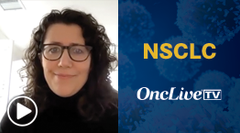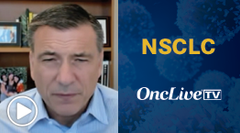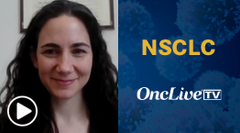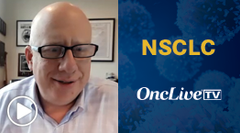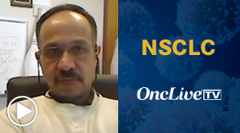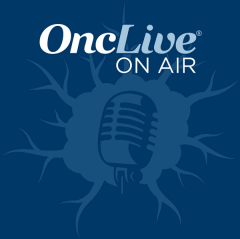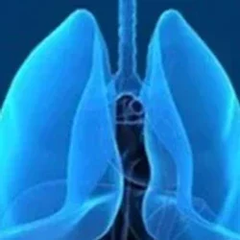
Dr. Goldberg on the Toxicity Profile of Amivantamab in Metastatic EGFR Exon 20–Mutant NSCLC
Sarah B. Goldberg, MD, MPH, discusses the toxicity profile associated with amivantamab in metastatic non–small cell lung cancer that harbors EGFR exon 20 insertion mutations.
Episodes in this series

Sarah B. Goldberg, MD, MPH, an associate professor of Internal Medicine and the associate director of the Hematology/Oncology Fellowship Program at the Yale School of Medicine, discusses the toxicity profile associated with amivantamab in metastatic non–small cell lung cancer (NSCLC) that harbors EGFR exon 20 insertion mutations.
Findings from the ongoing, phase 1 CHRYSALIS trial (NCT02609776) demonstrated clinical activity with the EGFR-MET bispecific antibody in this subpopulation of patients with NSCLC. Notably, amivantamab is administered intravenously, whereas the majority of EGFR inhibitors established in the field are oral agents, says Goldberg.
Although the majority of patients experienced adverse effects (AEs) with amivantamab, most events were grade 1 or 2 and dose reductions and discontinuations were infrequent. Common all-grade toxicities included rash and paronychia. Additionally, MET inhibitor–related AEs, such as edema, were observed since amivantamab targets EGFR and MET, explains Goldberg. Infusion-related reactions were also commonly observed but were mainly low grade and occurred during the first infusion, Goldberg says.
In December 2020, a biologics license application was submitted to the FDA for amivantamab for the treatment of patients with metastatic, EGFR exon 20–mutated NSCLC who have progressed on or following platinum-based chemotherapy.






